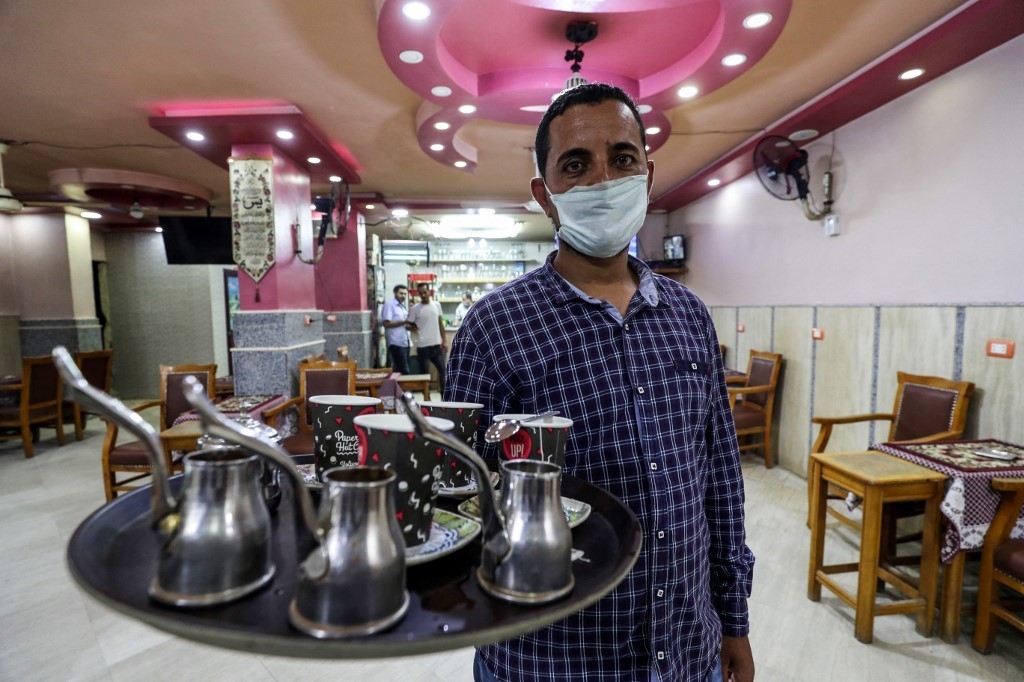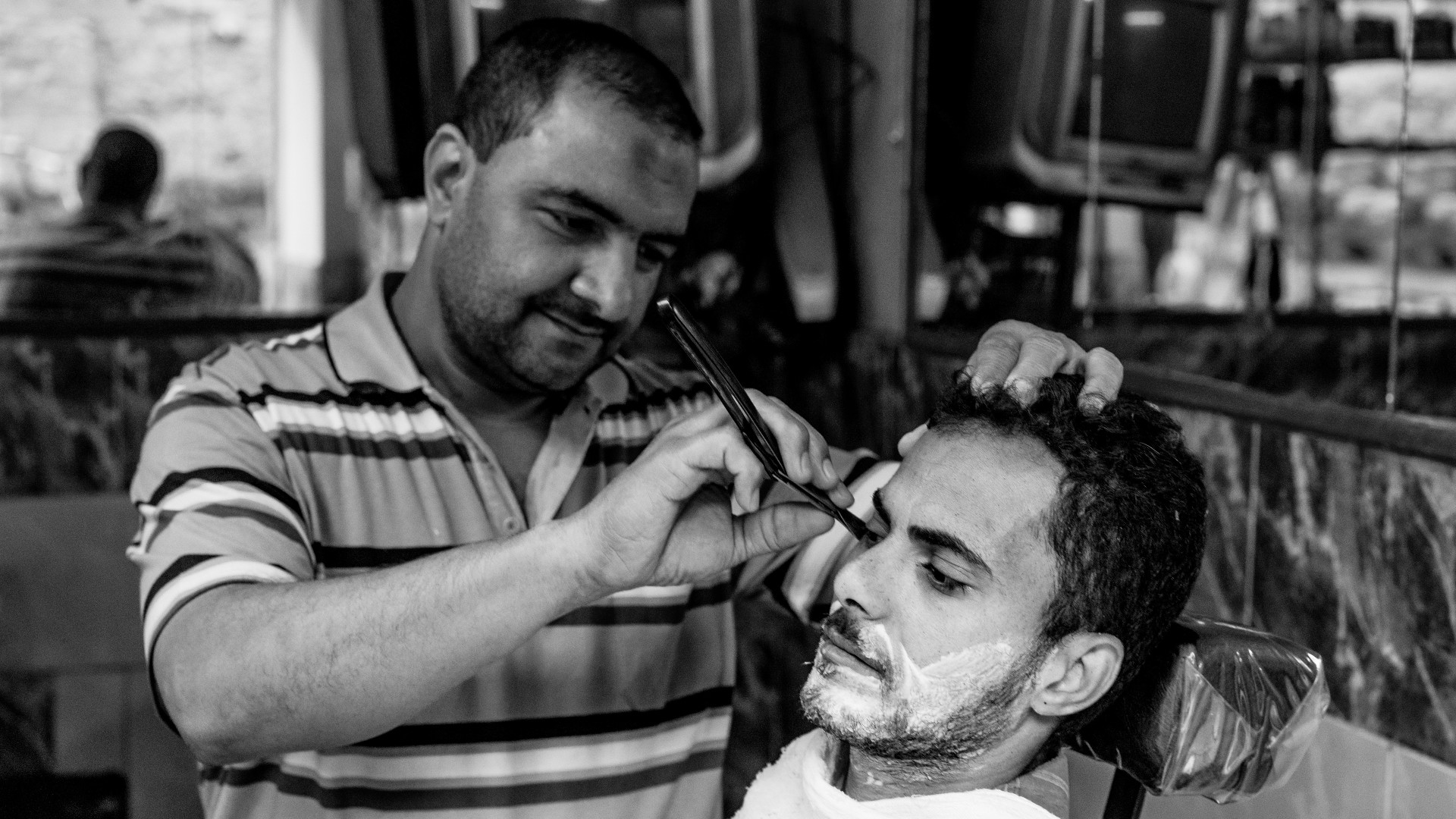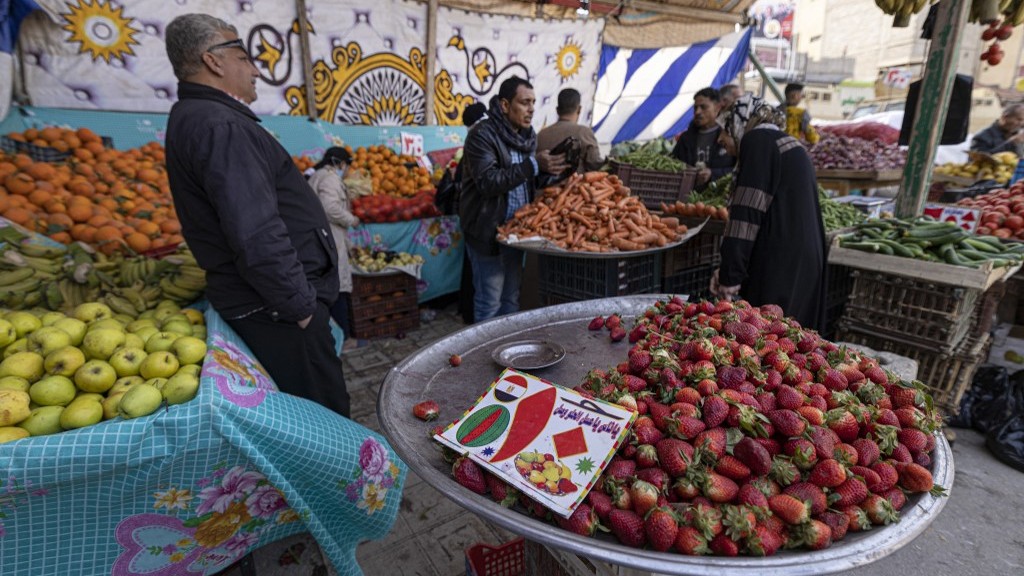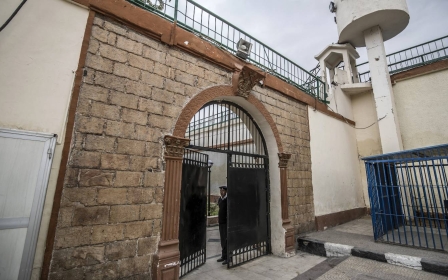Egypt demands new businesses get OK from security services - and pay hefty fees

Egyptians have reacted angrily to a government decision this week that requires the owners of dozens of commercial and industrial outlets to get approval from the security services in order to do their work.
According to the decision, announced on Sunday, the owners of supermarkets, shoe repair shops, cafés, cell phone repair and sale shops, and hairdressers, among 83 commercial and industrial activities, have to get approval from the security directorates in the areas where their shops are located in order to be licensed and operate legally.
Those violating the decision - including by failing to apply for permission from security directorates - will be heavily fined.
'What does the security establishment have to do with small businesses owned and run by Egyptian citizens?'
- Yumn al-Hamaqi, Cairo University
The Minister of Local Development Hisham Amna said the new law is aimed at formalising economic activities, so that: "Citizens can exercise their activities under the umbrella of the state to contribute to development efforts."
However, the move may not be easy to implement as hundreds of thousands of commercial and industrial activities have no documentation or licensing in Egypt. And yet now these businesses suddenly have to be certified, documented, and licensed following the new law that came into force this week.
New MEE newsletter: Jerusalem Dispatch
Sign up to get the latest insights and analysis on Israel-Palestine, alongside Turkey Unpacked and other MEE newsletters
The licensing process, which is dependent on approval from the security directorates, includes the payment of fees, ranging from 1,000 Egyptian pounds ($39) to 100,000 Egyptian pounds ($3,921), depending on the type of commercial or industrial activity applying for licensing and the size of the outlet or shop where this activity is done.
Shop owners say this is a huge amount of money, especially at this time of major recession.
"The government keeps inventing ways to extort money from people," Ibrahim Mahmud, the owner of a hairdressing salon for men in downtown Cairo, told Middle East Eye. "People like me expected the government to stop charging them money, especially with the economy deteriorating and people suffering."
High licensing fees, Mahmud says, make the prospect of full closure loom large over their businesses.
Others commented on the new measures with sarcasm.
"As a citizen who fears for the interests of his country, I suggest adding the shops that sell belts to this list," a man said sarcastically. "Belts can be turned explosive or be used in beating wives if they are hard enough," he wrote on Twitter.
"Shoe repair shops need security permissions to operate! We have truly reached the level of the outsole," wrote another.
Meanwhile, Yumn al-Hamaqi, an economics professor at Cairo University, said the measures will scare investors away.
"What does the security establishment have to do with small businesses owned and run by Egyptian citizens?" she said, speaking to MEE.
Likewise, some members of parliament oppose the new decision, warning against its impact on investments and millions of people who earn a living by running small businesses.
MP Freddy Elbaiady said the government should encourage investments, not complicate things for those who want to start their own businesses.
"This is not an appropriate time to impose such decisions, which complicate the doing of business," Elbaiady said. "We need to encourage youth to start their own businesses, not make things difficult for them," he told a talk show on the Saudi television channel, MBC.
Economic backdrop
The Egyptian economy has been severely hit by successive global crises over the past three years.
Covid-19 deprived the economy of billions of dollars in tourism revenues, cost the government billions of dollars to fund measures to rescue the economy and some economic activities, and wore out the national health system.
The virus outbreak also caused millions of people to lose their jobs, including in the tourism sector and in the small business sector.
The war in Ukraine is also dealing a deadly blow to the Egyptian economy, having forced food import-dependent Egypt to pay more for its imports.
The war also deprived Egypt of millions of tourists who used to visit it from the two countries implicated in fighting, Russia and Ukraine.
The resultant flight of billions of dollars in foreign assets has threatened the prospects of the Egyptian economy and forced Egyptian authorities to request billions of dollars in loans from international crediting institutions, including the International Monetary Fund.
The Ukraine war has negatively affected foreign currency reserves at the Central Bank of Egypt, especially because of its impact on the tourism sector, Mohamed Abdel Hamid, a member of the Economic Committee in the Egyptian parliament, told MEE, adding that it has also affected producers who found it hard to get the imports they needed.
Egypt also launched into a massive selling of its assets to oil-rich Arab nations in a bid to cope with the devastating economic consequences of the war and bring in the required liquidity to purchase the needs of its people from the international market and meet its international obligations.
Egypt needs to create close to a million jobs for its youth every year, maintain high economic growth rates and move ahead with its development.
To do this, it is carrying out legislative amendments, offering plots of land for investors, and introducing tax exemptions in a number of economic activities.
The government also prepared a strategy to empower the private sector, including by exiting from some sectors of the economy.
Informal economy
The new decision also comes at a time when the Egyptian government is working hard to increase tax revenues to bridge a yawning budget deficit.
The government is raising the fees it charges ordinary people on all types of services, from car licensing fees to payments for official documents, including passports, and identity cards.
'Tax evasion will be something of the past when all businesses are registered, regardless of how small they are'
- Mahmud al-Saeedi, MP
Meanwhile, Egypt has a problem incorporating informal economic activities into the formal economy.
Informal economic activities make up almost 50 percent of the Egyptian economy, producing three trillion Egyptian pounds (around $117 billion) in goods and services every year.
The Egyptian treasury loses around 400 billion pounds (about $15.6 billion) annually in uncollected taxes from informal commercial and industrial outlets, according to the Central Agency for Public Mobilisation and Statistics, the official statistics arm of the Egyptian government.
Against the backdrop this tough economic situation, supporters of the new shop licensing law believe that the licensing of all commercial and industrial outlets will ensure that the government will have records of all economic activities and so be able to include these activities in the official tax system.
"This licensing process is very important for the economy," Mahmud al-Saeedi, a member of the Economic Committee in the parliament, told MEE: "Tax evasion will be something of the past when all businesses are registered, regardless of how small they are."
Middle East Eye delivers independent and unrivalled coverage and analysis of the Middle East, North Africa and beyond. To learn more about republishing this content and the associated fees, please fill out this form. More about MEE can be found here.






